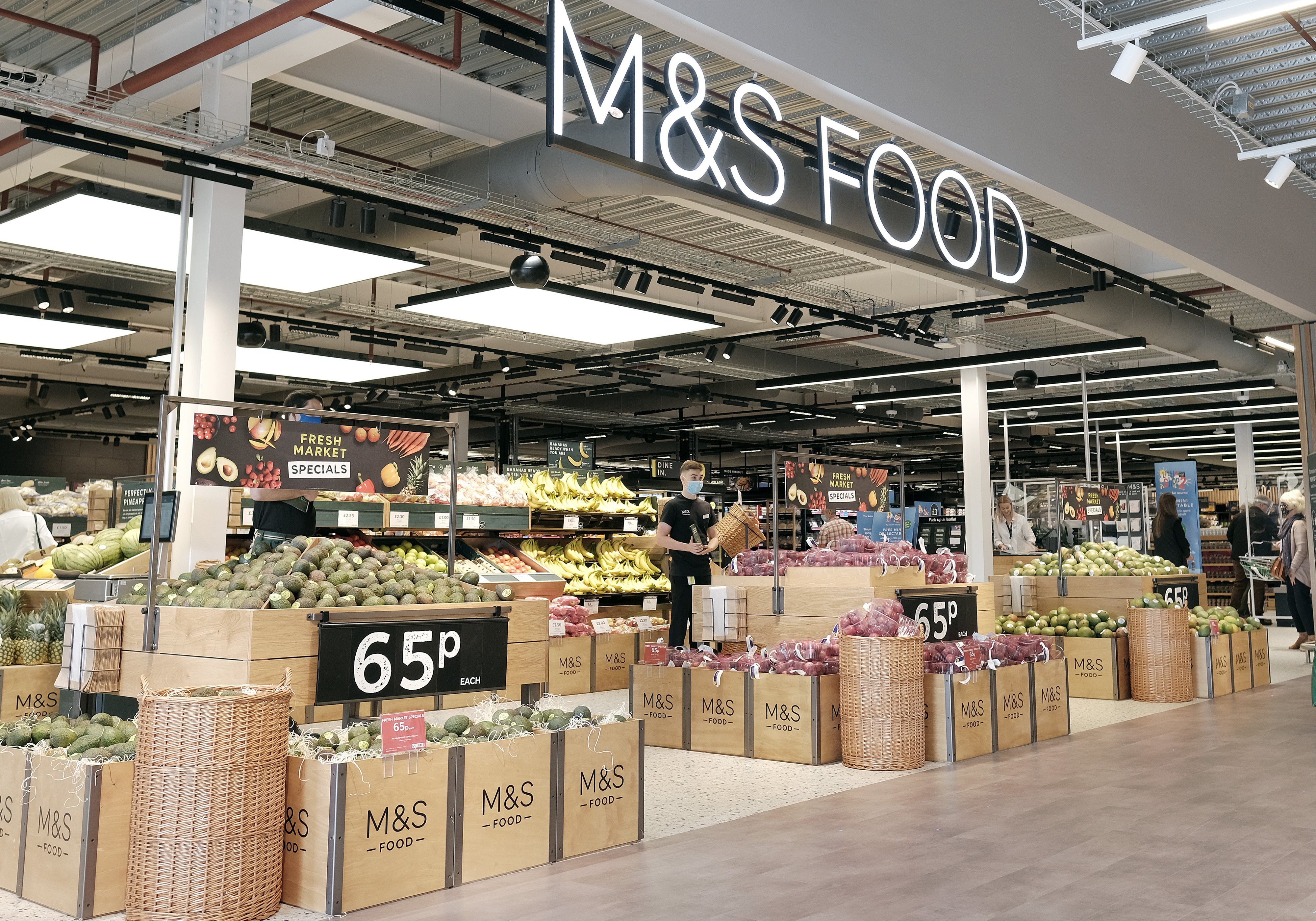Ocado struggles tarnish the departure of M&S chief who fixed core business
His successors at least have something to work with even as the cost of living crisis is exacting a heavy toll on Ocado Retail, which is 50 per cent owned by M&S after the outgoing CEO’s pricey buy-in, writes James Moore


We’ve become accustomed to Ocado’s shopping basket looking bright and shiny but lately it has become tarnished.
The firm, owned 50-50 by Ocado and Marks & Spencer, has seen sales tumble further in recent weeks as shoppers bought less because of the cost of living crisis. It said on Wednesday that sales fell 8 per cent in the quarter to 25 April, on top of a 5.7 per cent fall in the previous quarter.
The horror show of a trading update somewhat soured Steve Rowe’s last day as chief executive of M&S, a company he has done much to revive. He is the one who orchestrated the high-price deal in which M&S bought into Ocado Retail.
The joint venture had been expecting sales growth of 10 per cent by the end of the year. That has now been revised to “low single figures”.
Another nasty came courtesy of the grocer’s average basket size. Ocado said it was noticing “one or two fewer items per shop” than before, with the average basket currently trending 9 per cent lower than it was a year ago.
Those “one or two” items must have been fancy bottles of wine or upscale ready meals, I expect.
Consumers at the top of the pay scale, working in fields such as IT and professional services, have been largely insulated from the cost of living crisis thanks to robust salary increases, according to a recent report by the Office for National Statistics.
But there just aren’t enough of them to keep Ocado’s growth looking rosy. Managing the crisis is perhaps the biggest challenge it has faced.
The group pointed out that the online grocery market remains much bigger than it was before the pandemic, in spite of the revival of pre-pandemic shopping habits. Meanwhile, new capacity is going to come on stream to serve what the group described as “deep pools of demand”.
How deep will those pools be? The crisis is posing a real challenge to Ocado’s business model, which had been motoring on the back of cash-rich, time-poor customers who aren’t as cash-rich as they were.
This does not bode well given the business has struggled to prove sustainably profitable at the pre-tax level, at least in the short term. It’s a mark of the newfound resilience of M&S that it has been able to somewhat shrug this off.
The coming months will be difficult for M&S too. But Rowe has at least left his successors something to work with, having done much to fix a business that at times looked all but unfixable under a succession of high-priced, high-profile chief executives, who departed with the share price and their reputations in the “reduced” section.
His bet on M&S Food has proved to be a good one. Even if the Ocado deal, which was a key part of it, looks more questionable than it did, he made it at a time when boldness was required. The M&S management structure following Rowe’s departure looks unwieldy.
Stuart Machin will be the day-to-day chief executive. Katie Bickerstaffe, who also gets to put chief executive on her business card, is responsible for integrating the online and high street operations, which remains an issue. Finance director Eoin Tonge, who had also been in contention for the top job, will oversee strategy in addition to his existing job.
Too many cooks could spoil the M&S broth just as it starts to taste better. This will be a challenge to manage, under the beady eyes of chair Archie Norman, at a very difficult time. One has to wonder how long the arrangement will last.






Join our commenting forum
Join thought-provoking conversations, follow other Independent readers and see their replies
Comments